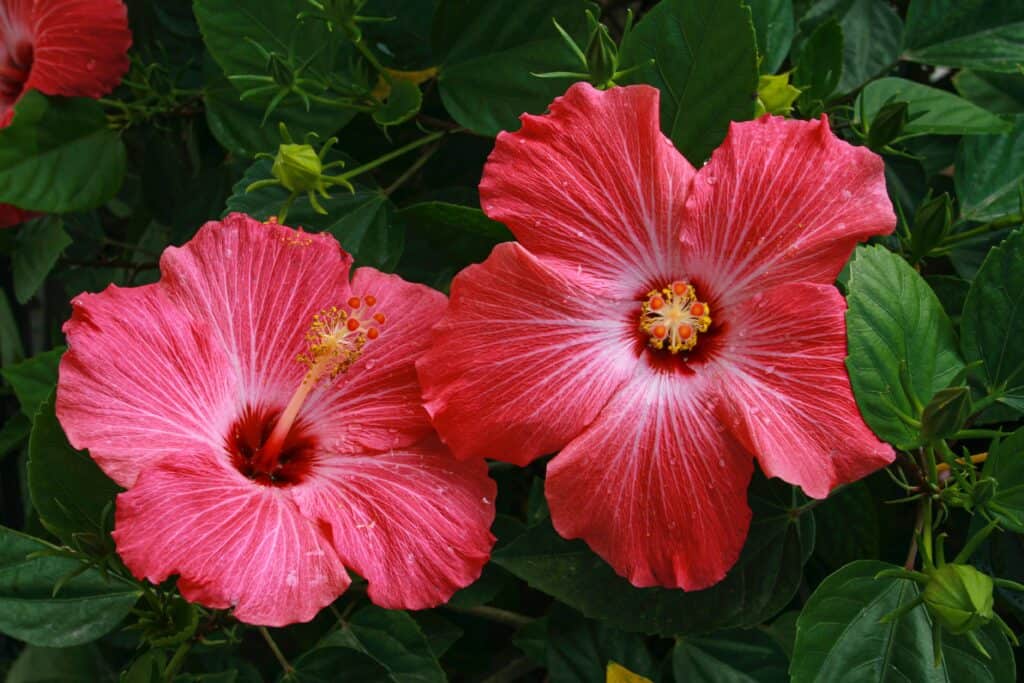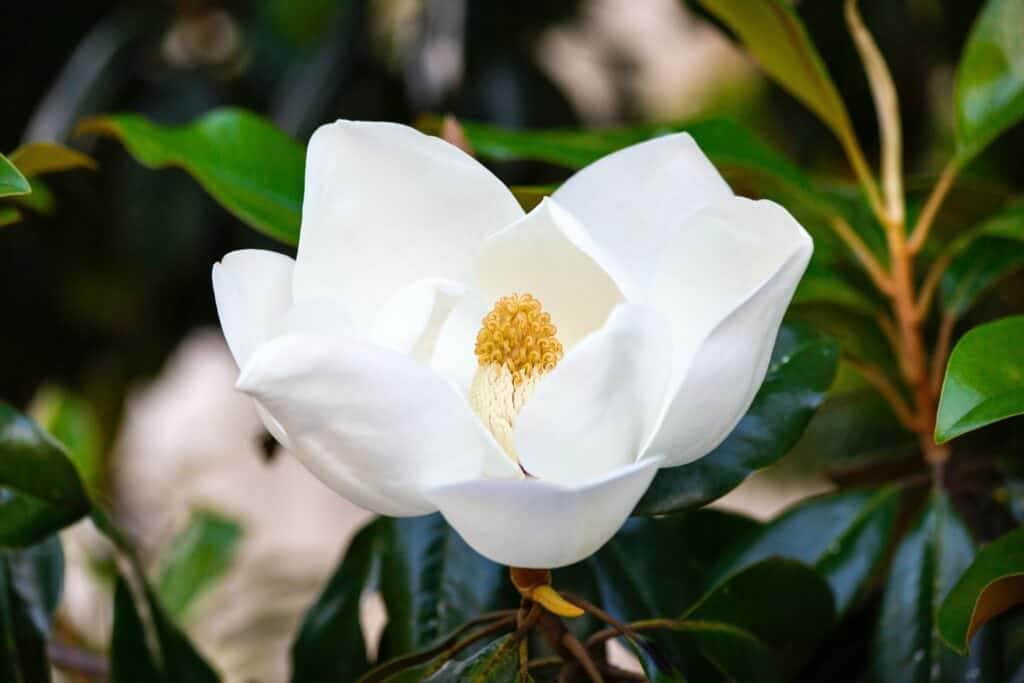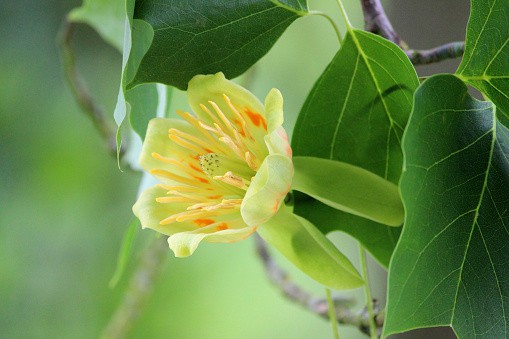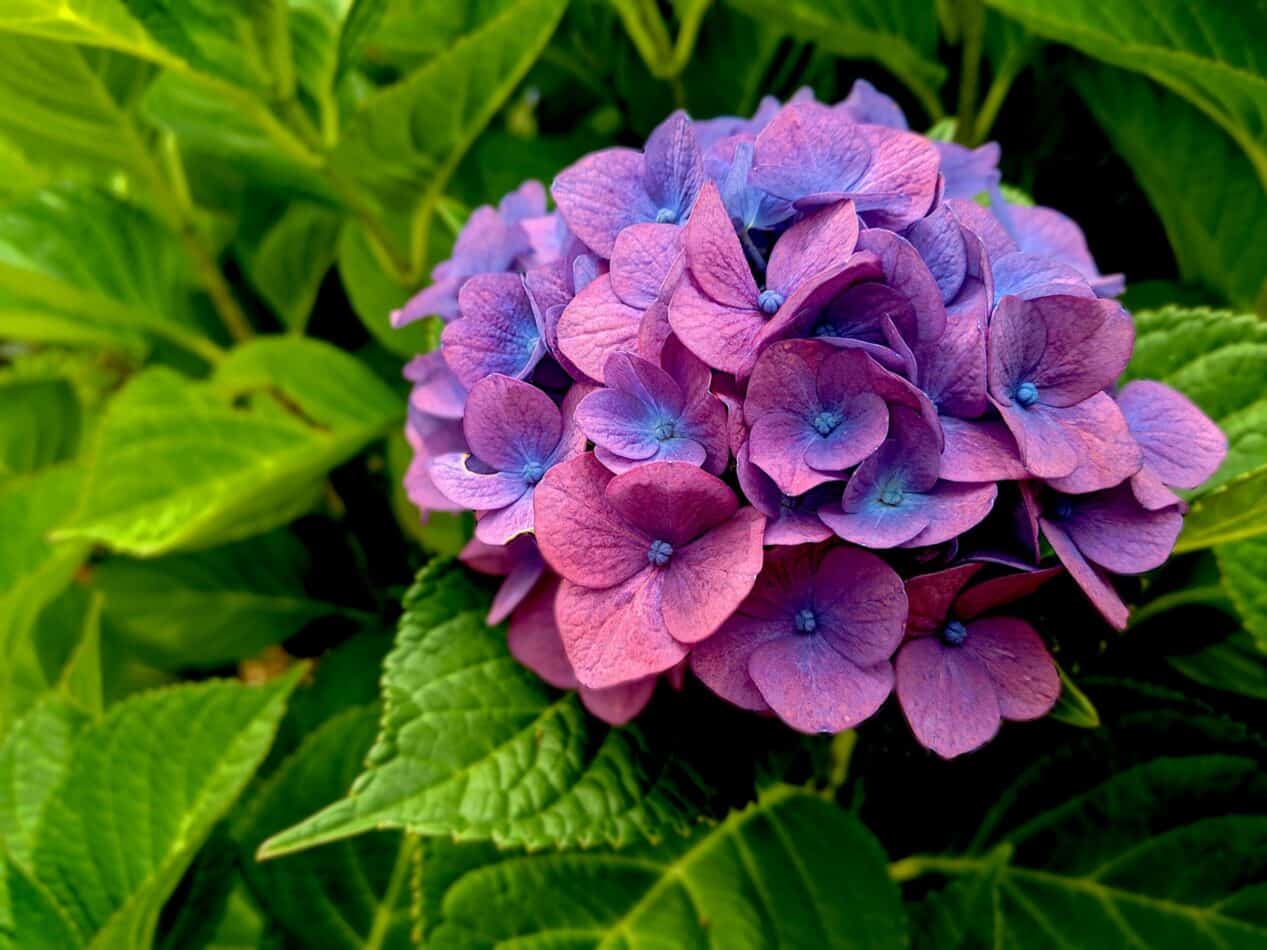Exploring the vibrant world of African American culture and heritage, one cannot overlook the symbolic importance of certain flowers.
We selected some amazing and captivating flowers: the red hibiscus, black-eyed Susan, magnolia, and rose, which have become cherished emblems honoring the resilience and strength of the African American community.
Join us as we explore the symbolism, cultural significance, and mythological ties of these flowers, deepening our understanding of their profound connection to African American culture and the Juneteenth celebrations. Uncover their rich history and discover why they stand as enduring symbols of courage and resilience for this community.
Best Flowers for Juneteenth Celebration

Red Hibiscus
The red hibiscus holds a significant place in celebrations and decorations that honor African American culture and heritage. Its vibrant red color is particularly notable, as it symbolizes resilience, courage, and strength. This symbolism aligns with the enduring struggles of the African American community throughout history, including their journey from slavery to freedom.
When exploring the history and etymology of the hibiscus flower, it becomes evident that this plant has deep roots in various cultures around the world. The term “hibiscus” can be traced back to the Greek word “hibískos.” Native to tropical and subtropical regions such as Africa, Asia, and the Pacific Islands, the hibiscus flower has a diverse cultural background. It has been cherished for centuries in African cultures, where it is associated with beauty, femininity, and healing properties.
Mythological significance is another aspect that adds to the rich tapestry of the hibiscus flower. In ancient Egypt, the hibiscus was linked to fertility and revered as a symbol of the goddess Isis. In Hawaiian culture, it holds a place of prominence as the state flower, representing power and respect. Across numerous cultures, the hibiscus flower has also been utilized in traditional medicine for its healing properties.
The association between the hibiscus flower and Juneteenth may vary depending on regional and cultural preferences. However, one possible reason for this association is the flower’s symbolism of strength, resilience, and its connection to African heritage. The vibrant red hue of the hibiscus resonates with the spirit of Juneteenth, commemorating the emancipation of enslaved African Americans. Just as the flower withstands adversity and blossoms brilliantly, the African American community has shown immense strength and resilience in the face of oppression.
 Magnolia
Magnolia
The magnolia flower, often associated with the South in the United States, holds deep historical significance in African American culture.
Its symbolism encompasses endurance, dignity, and strength. The magnolia tree was a symbol of freedom during the Civil Rights Movement, representing the fight for equality and justice.
The word “magnolia” is derived from the name of French botanist Pierre Magnol.
In mythology, magnolias are associated with beauty and perseverance. The association of magnolias with Juneteenth could stem from their representation of the ongoing struggle for freedom and the resilience of the African American community.

Black-Eyed Susan
The Black-Eyed Susan flower, the state flower of Maryland, is recognized for its golden yellow petals with dark centers.
It signifies justice, freedom, and optimism.
The flower’s name is believed to have originated from a poem by English poet John Gay, titled “Sweet William’s Farewell to Black-Eyed Susan.”
In American folklore, the Black-Eyed Susan is associated with a tale of a young girl named Susan who searches for her lost lover.
The flower’s association with Juneteenth could reflect the pursuit of justice, the quest for freedom, and the hope for a brighter future.
 Rose
Rose
Roses are timeless symbols of love, beauty, and strength. They come in various colors, each carrying its own significance. Red roses symbolize love and courage, while yellow roses represent friendship and joy.
In African American history, roses were often associated with Black suffragettes and activists such as Rosa Parks.
The word “rose” has Latin origins and is derived from the Greek word “rhodon.” Roses have also played a role in mythology, with associations to various deities in Greek and Roman cultures.
The connection of roses to Juneteenth could encompass the themes of love, unity, and the ongoing struggle for equality.
It is important to recognize that Juneteenth celebrations and their associated symbolism can differ among communities and individuals. While the red hibiscus is commonly mentioned in relation to African American culture and Juneteenth, other flowers and symbols may also hold significance depending on the specific traditions and preferences of different communities.
What we love from Amazon this week
Buy these wonderful flowers directly from Amazon:















